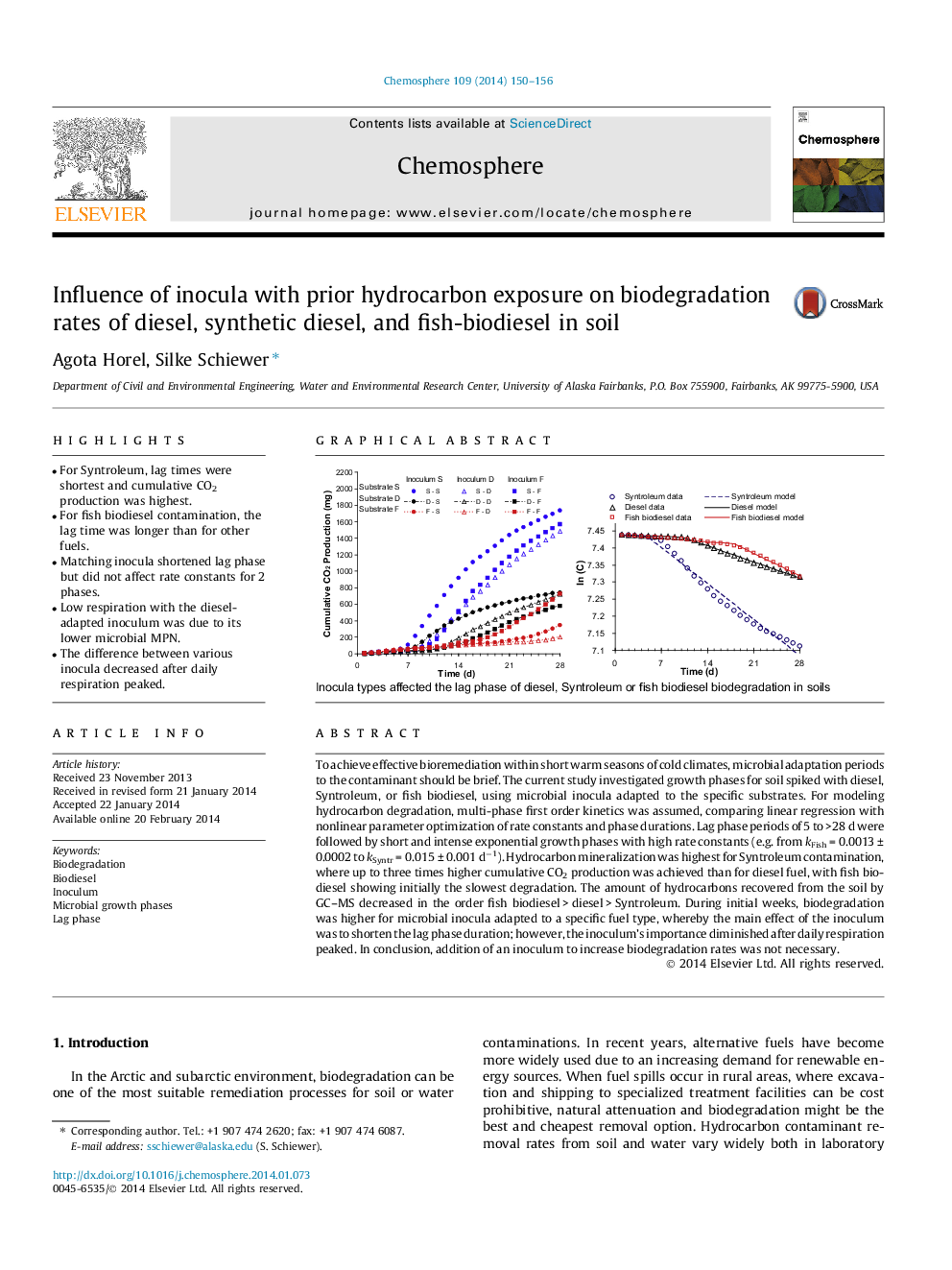| کد مقاله | کد نشریه | سال انتشار | مقاله انگلیسی | نسخه تمام متن |
|---|---|---|---|---|
| 6309037 | 1618862 | 2014 | 7 صفحه PDF | دانلود رایگان |
- For Syntroleum, lag times were shortest and cumulative CO2 production was highest.
- For fish biodiesel contamination, the lag time was longer than for other fuels.
- Matching inocula shortened lag phase but did not affect rate constants for 2 phases.
- Low respiration with the diesel-adapted inoculum was due to its lower microbial MPN.
- The difference between various inocula decreased after daily respiration peaked.
To achieve effective bioremediation within short warm seasons of cold climates, microbial adaptation periods to the contaminant should be brief. The current study investigated growth phases for soil spiked with diesel, Syntroleum, or fish biodiesel, using microbial inocula adapted to the specific substrates. For modeling hydrocarbon degradation, multi-phase first order kinetics was assumed, comparing linear regression with nonlinear parameter optimization of rate constants and phase durations. Lag phase periods of 5 to >28 d were followed by short and intense exponential growth phases with high rate constants (e.g. from kFish = 0.0013 ± 0.0002 to kSyntr = 0.015 ± 0.001 dâ1). Hydrocarbon mineralization was highest for Syntroleum contamination, where up to three times higher cumulative CO2 production was achieved than for diesel fuel, with fish biodiesel showing initially the slowest degradation. The amount of hydrocarbons recovered from the soil by GC-MS decreased in the order fish biodiesel > diesel > Syntroleum. During initial weeks, biodegradation was higher for microbial inocula adapted to a specific fuel type, whereby the main effect of the inoculum was to shorten the lag phase duration; however, the inoculum's importance diminished after daily respiration peaked. In conclusion, addition of an inoculum to increase biodegradation rates was not necessary.
Journal: Chemosphere - Volume 109, August 2014, Pages 150-156
